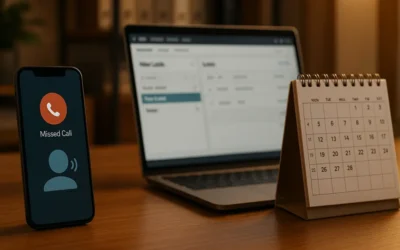The Power of Speed: Building Trust and Boosting Conversions Through Rapid Responses

In competitive sales environments, the speed of response can distinguish a closed deal from a lost opportunity. Customers today overwhelmingly expect immediate engagement. When businesses reply swiftly—often within a minute—they not only capture attention but also build crucial trust and credibility. Fast responses create a sense that customers are valued and understood, which lays the foundation for loyalty and repeated business.
Statistics clearly demonstrate the impact of timely replies. Responding within one minute makes a business up to seven times more likely to convert leads and yields nearly four times more conversions. This is not just about speed for speed’s sake. A rapid response grabs prospects at the moment they are most interested, minimizing the risk they’ll turn to competitors or abandon their purchase altogether. For example, live chat interactions with response times under a minute reach customer satisfaction rates above 85%, far exceeding slower communication channels like email or phone.
More than quick replies, customers seek relevant and valuable information promptly. Businesses that implement AI-driven chatbots and real-time notification systems can engage leads instantly and maintain conversation momentum. This technology ensures that no lead goes unattended, enhancing both the speed and quality of interactions. Such tools also help sales and marketing teams work cohesively, handing off leads seamlessly to keep response times low and relevance high.
In complex B2B sales processes, where decisions take longer, the principle remains: timely and consistent engagement builds confidence over time. Prompt responses paired with clear, useful communication reduce friction and provide reassurance that the company is reliable and attentive to client needs.
Ultimately, responding quickly meets the expectations of 83% of customers who want immediate engagement. This approach converts a dramatically higher percentage of leads while fostering satisfaction and trust that encourages customer retention. Speed, supported by intelligent automation and integrated workflows, becomes a key competitive advantage that drives not only initial sales but long-term growth.
For deeper insights on how live chat response times influence sales outcomes, consider the detailed analysis by Core Integrated: https://coreintegrated.com/2025/07/08/live-chat-response-time-matters/. For guidance on enhancing lead response capabilities through technology, explore relevant strategies in our article on how to boost lead response time with AI.
How Slow Responses Destroy Deals by Losing Customer Interest and Straining Operations

Slow responses are often the silent deal killers, eroding customer interest and triggering operational inefficiencies that ripple across sales and service teams. When a business takes too long to engage leads or answer inquiries, it sends unintended signals of disinterest or incompetence. This perception swiftly damages trust and diminishes the perceived value of the product or service, prompting prospects to turn to competitors who respond faster and more confidently.
Research confirms the critical impact of speed: responding within the first minute can boost conversion rates by an astounding 391%, and companies that answer fastest typically secure up to 50% of sales. Conversely, sluggish replies stall sales momentum, causing potential buyers to disengage and deals to wither. These delays not only reduce the chances of closing sales but also increase customer churn and weaken long-term loyalty, making it harder to build sustainable relationships.
Operationally, the consequences of slow responses are equally damaging. When leads or customers don’t receive timely communication, they often reach out multiple times across various channels, leading to confusion and duplicated effort. This fragmented interaction wastes valuable time and energy, burdening sales representatives with follow-ups that could have been avoided. The resulting frustration affects morale and contributes to burnout, which undermines performance and leads to missed quotas.
For sales managers, slow follow-ups obscure true team performance and complicate forecasting. It becomes difficult to identify where breakdowns occur, making coaching less effective and tipping recruitment and resource allocation off balance. At an organizational level, prolonged response times inflate customer acquisition costs and hinder predictable revenue growth, stripping away scalability from what should be streamlined sales processes.
To reverse these trends, businesses should prioritize real-time notifications for new leads and deploy AI-powered chatbots that engage prospects instantly. These tools ensure no inquiry goes unanswered and allow sales teams to focus on the hottest leads with the highest chance of conversion. Seamless handoffs between marketing and sales are essential, minimizing delays and maintaining the buyer’s engagement.
Automation plays a key role in improving efficiency — streamlining workflows and reducing manual error ensures consistency and rapid response across all touchpoints. Implementing dedicated customer service platforms can further enhance speed and reliability, preserving trust and sustaining sales momentum.
For deeper strategies to tackle these challenges, insights on how to solve slow lead response problems can be found in this detailed guide.
Understanding and addressing the deadly cost of delayed responses is vital. Speed is not just a luxury; it is a competitive necessity that keeps deals alive, customers engaged, and operations running smoothly.
Final thoughts
Speed in response is pivotal for businesses aiming to enhance customer trust and boost sales conversions. By implementing efficient communication strategies, companies not only improve operational efficiency but also solidify customer relationships, driving business growth. Ignoring response times can lead to lost sales and damaged reputations, underscoring the importance of quick engagement.
Ready to transform your business with real AI employees? Let vaiaverse automate your sales, support, and lead generation with powerful AI Agents – fully operational across phone, email, WhatsApp, and more. Talk to our team and discover how smart your business could run.
About us
vaiaverse is the home of next-generation AI agents – digital employees that handle real business tasks across lead generation, sales, and customer support. Whether it’s qualifying leads by phone, answering common questions over WhatsApp, or managing follow-ups by email, our ready-made and bespoke AI Agents are built to save time, cut costs, and scale your operations without hiring. From simple drag-and-drop onboarding to advanced AI teams with SLAs – vaiaverse offers flexible solutions for companies ready to automate what slows them down and double down on what drives growth.









